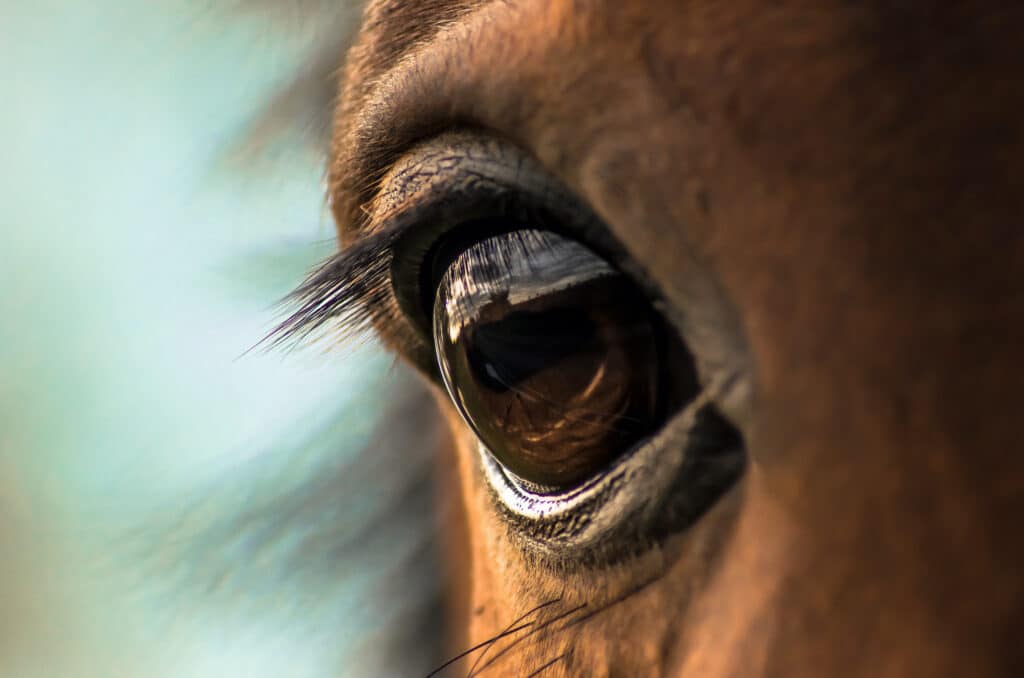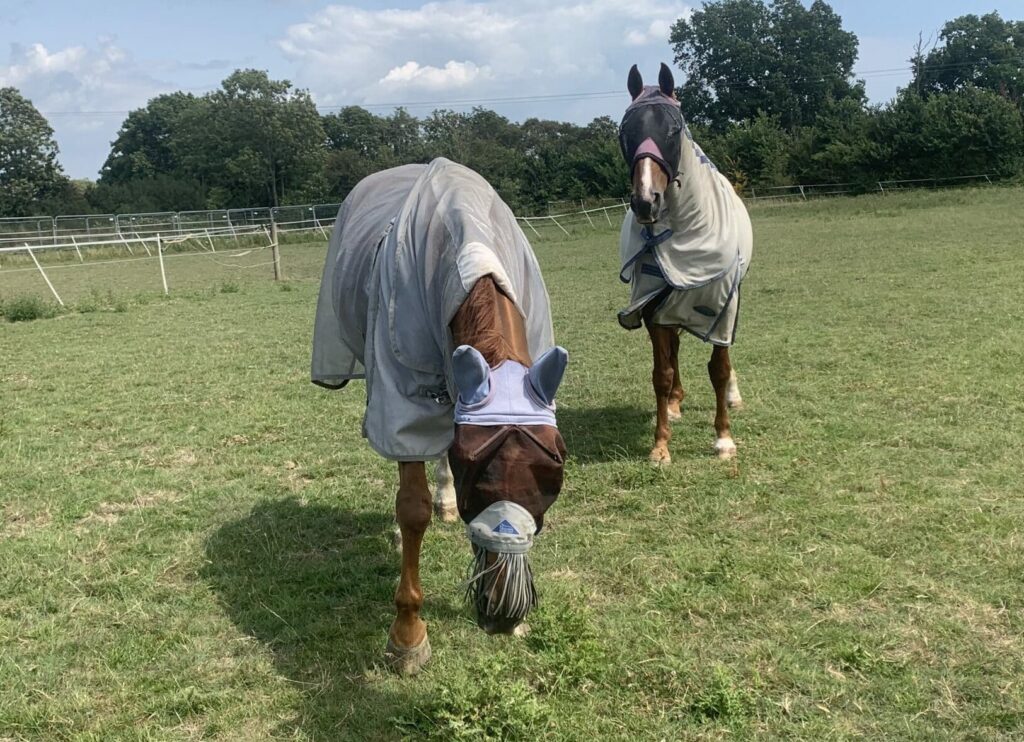Featured, First Aid, Veterinary
Equine eyes
First Aid Facts – in a new series The Horse Hub talks to equine vet Alex Paterson
When we look at the position and prominence of a horse’s eyes, it is quite amazing that they are not constantly being injured.
Equine eyes are however, very vulnerable, delicate and irreplaceable, so we should never consider any equine eye problem to be insignificant, no matter how small it may seem.

Equine eye injuries
The most important rule with any eye injury to your horse is, if something is lodged in your horse’s eye DO NOT pull it out! Contact your vet urgently.
What might appear to be small and easy to remove could actually be penetrating a vital part of the eyeball, which would be seriously damaged if removed without the proper veterinary care.
The same applies to an injury or tear to the eyelid. With such a delicate structure it is always better to be safe and consult your vet so that it can be properly assessed, treated and sutured if necessary.
Watery eyes and infections
In the summer months we are always plagued by flies, which are inevitably drawn to the eyes; along with dust from harvesting, pollen and other allergens, any and all of which can cause conjunctivitis (inflammation of the conjunctival membrane around the eyeball).
Signs of inflammation may initially begin with a watery discharge that develops into pus and the horse closing or partially closing the eye. Never ignore these signs, although they are often easily resolved, they can be early signs of an extremely serious corneal infection, known as a ‘melting ulcer’, where the bacteria attacks the cornea and, has the potential to cause blindness within a matter of hours.
Clues that your horse might have an eye problem
- A closed or partially closed eye
- Increased watering
- Swelling around the eye
- Sensitivity to light
What should you have in your first aid kit for eye treatment?
- An unopened, in date sterile, saline solution such as Optrex, can be used to treat a confirmed condition of conjunctivitis under veterinary supervision.
- Do not keep old tubes of cream or bottles of eye wash.
- Do not use any eye ointment without consulting your vet – some contain steroids that will cause harm if your horse has an eye ulcer.
- Reduce the risk of fly induced eye infections by using a well fitting fly mask (that does not impede the eye lashes when the horse blinks!)
What should you do if you think your horse has an eye problem?
ALWAYS TALK TO YOUR VET!
Read more First Aid Facts

